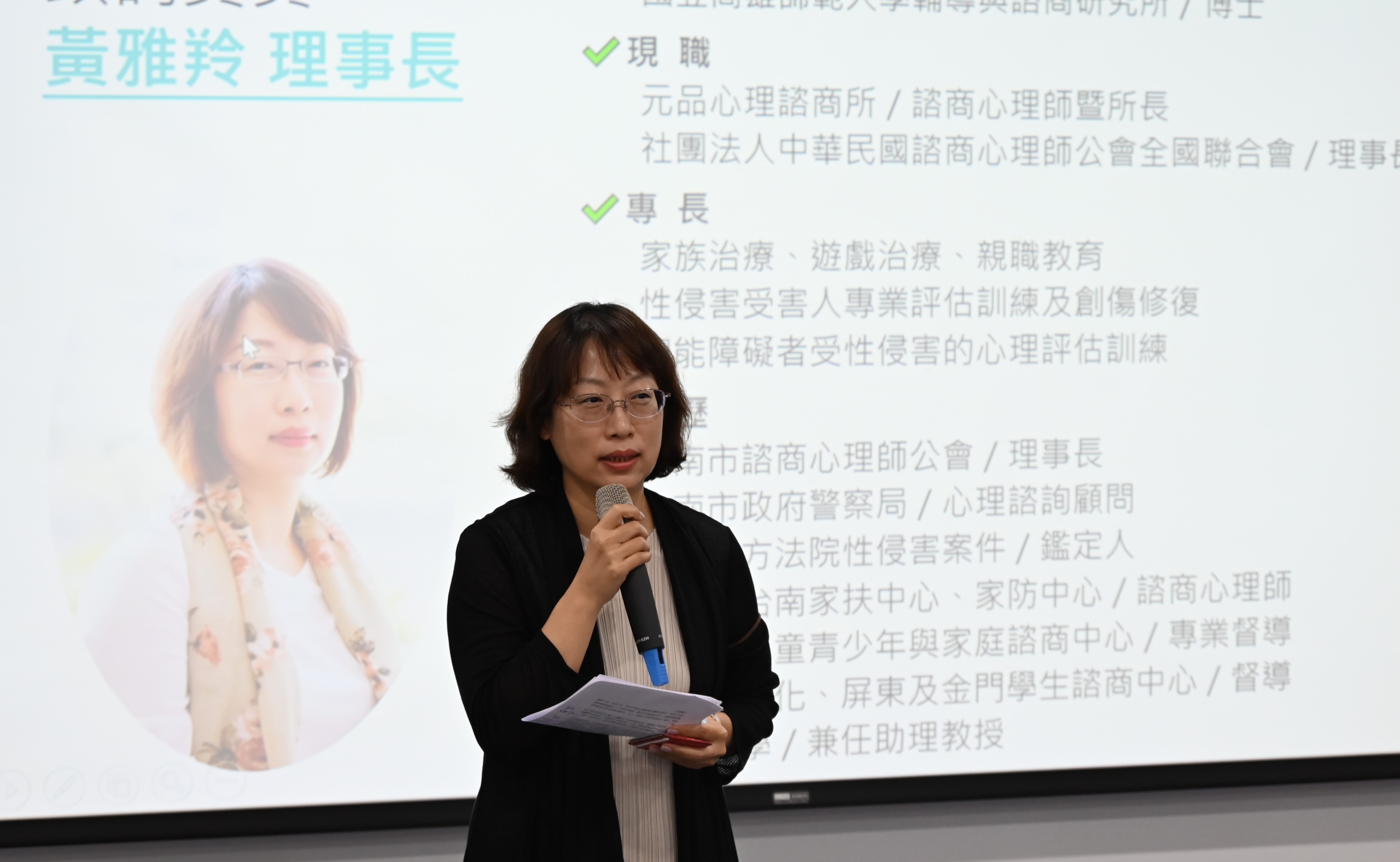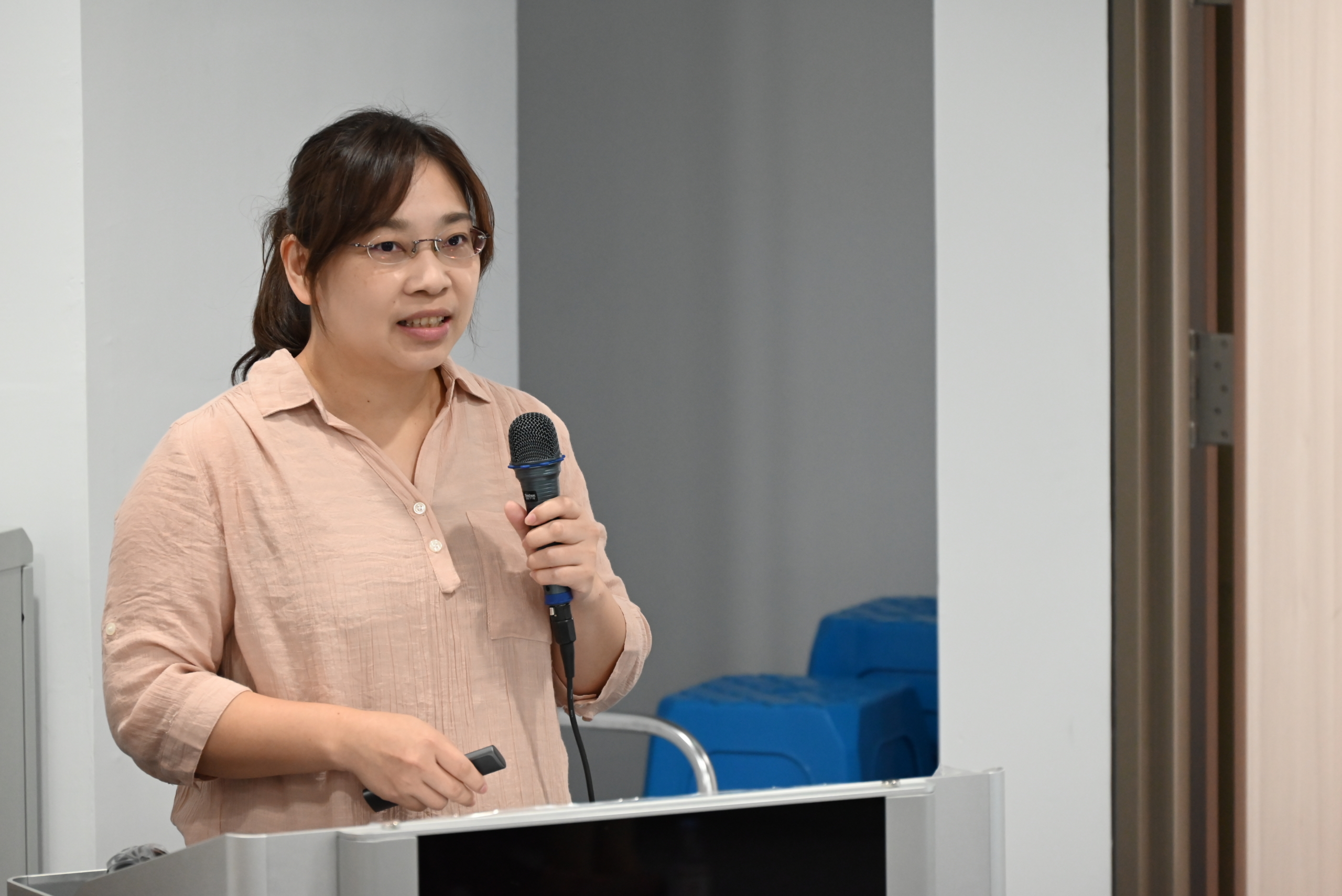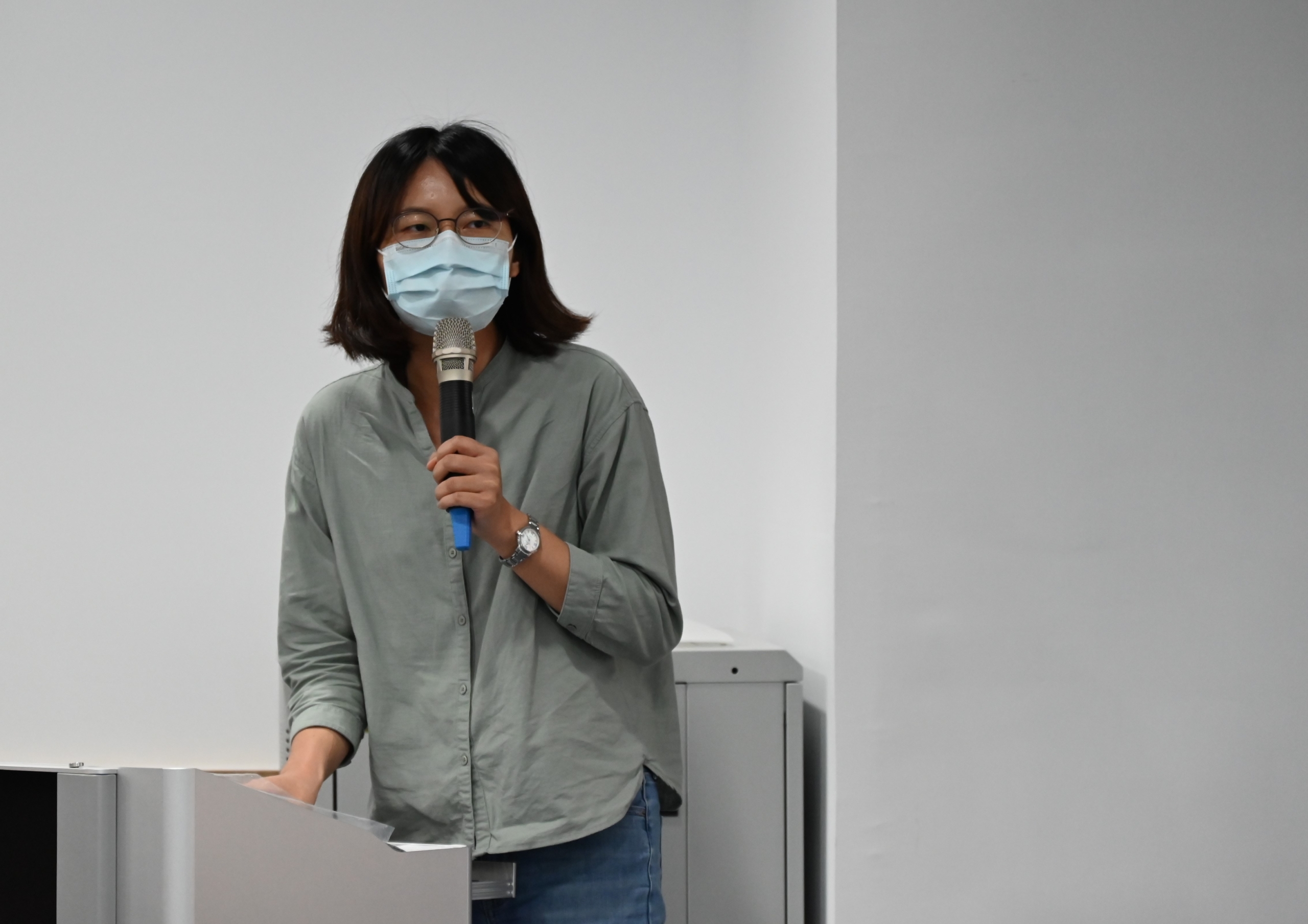【Post-Event Report】20230822 #METOO Seminar Series (Second Half)
Chairperson Huang Yaling: Emphasizing the Need for a Comprehensive Support System and Improved Treatment

Chairperson Huang Yaling shared her years of experience working with survivors of sexual assault. She discussed the legal reforms and institutional changes regarding sexual assault in Taiwan while highlighting the need for further development in the treatment system. She delved into cases from different time periods, with a particular focus on workplace harassment issues. She explained the differences in power dynamics and emphasized the need for legal enhancements to protect the rights of sexual assault survivors.
She stressed the importance of the “Protection, Release, and Treatment” triad for survivors. While Taiwan places strong emphasis on protection systems, Chairperson Huang pointed out that the treatment system still requires improvement. Using real-life examples, she illustrated how survivors often have to navigate between protection and the judicial system, underscoring the significance of the treatment system. She advocated for increased focus on the therapy of young survivors and the establishment of treatment centers for adult survivors. She noted that while the protection and judicial systems are relatively well-established, there is room for improvement in the treatment system.
Chairperson Huang looks forward to sharing insights with various stakeholders and collaboratively building a more comprehensive support system to ensure survivors receive multi-faceted assistance.
Chung-Hsi Lee, Deputy Director, emphasized the need for collaborative efforts to promote gender equality and to care for victims

He stressed that professional discussions should encompass the three major systems: protection, justice, and therapy, to address the concerns of victims comprehensively. Each system has its unique focal points, ranging from safeguarding privacy to uncovering the truth in the legal process, and meeting the professional manpower and resource requirements for therapy. He noted that the effects of trauma can be long-lasting and that the Health and Welfare Policy Research Center is dedicated to strengthening the therapy system by integrating psychiatric and psychological counseling and enhancing resource development. He further emphasized that this is just the beginning and expressed hope that through these discussions, collaborative approaches can be identified to assist victims and promote gender equality.
Psychologist Hsia Chia-Wen: Analyzing Psychological Trauma and Victim Emotional Responses

Psychologist Hsia Chia-Wen, in her presentation, shared her years of experience focusing on psychological trauma assessment and assisting victims in managing emotional responses. She used psychological trauma assessment scales as tools to gain an in-depth understanding of the emotional states of victims. Additionally, she described possible emotional reactions among victims, including fear of safety, distrust of their surroundings, concerns about retaliation, and aversion to specific triggers. Emotional instability was identified as a common response, which could manifest as mood swings, arguments, and depression. Furthermore, victims might worry about contracting diseases, pregnancy risks, and physical harm, leading to negative body image issues. Sexual activities could also impact a victim’s self-esteem and affect their relationships with partners. She emphasized that through assessment, a deeper understanding of a victim’s psychological state could be achieved, enabling more appropriate support and therapy.
Exploring Victims’ Fears of the Legal Process Psychologist Hsia Chia-Wen mentioned another critical issue, which is victims’ fears regarding the legal process. Victims may worry about insufficient evidence, doubts about their credibility, courtroom pressures, and disruptions to their daily lives caused by legal proceedings. Moreover, victims might experience guilt and self-blame, believing they may have done something wrong during the incident or trusted the perpetrator too much. She further discussed symptoms of Post-Traumatic Stress Disorder (PTSD) and elaborated on the emotional responses victims might face, such as emotional instability, deteriorating sleep quality, nightmares, and sudden awakenings. To avoid reliving the pain, victims might choose to suppress key parts of the traumatic event. Finally, she highlighted the crucial roles played by social workers and counselors at various stages, particularly in assisting with legal proceedings and providing emotional support during the recovery process.
Advocating for Close Collaboration Between Psychological and Legal Professions Psychologist Hsia Chia-Wen in her presentation provided a comprehensive overview of the emotional and psychological responses faced by victims and emphasized the support offered by social workers and counselors at different stages. She particularly addressed the challenges victims encounter within the legal process and the differences between psychological and legal professions. She called for closer collaboration between these two fields to better understand the emotional needs of victims. Ultimately, she hoped that the legal system could become more sensitive to victims’ needs and provide more gentle and humane support to promote their recovery and healing.
Attorney Huang Huaiying: Challenges and Advocacy in Assisting Sexual Assault Survivors

Attorney Huang Huaiying revealed in her speech that her primary area of legal involvement is focused on assisting sexual assault survivors. She provides legal consultations before reporting incidents and offers full support after the report, including emotional support and guidance through the challenging legal processes.
Exploring Challenges in Sexual Assault Cases Attorney Huang delved into the various challenges that survivors face within the legal process. She pointed out that during court proceedings, survivors may face questioning about the sufficiency of evidence and must counter inquiries and accusations from the other party. Furthermore, because legal terminology can be relatively unfamiliar to the general public, survivors may feel stressed and concerned that their statements could affect the case’s outcome. In this regard, Huang stressed the importance of helping survivors understand legal concepts and providing emotional support to alleviate their psychological burden.
Psychological Barriers and Lack of Sexual Education In addition, she further explored the psychological barriers that survivors may face when reporting incidents, including societal perceptions and potential backlash, which can lead to hesitation. Simultaneously, the lack of sexual education during adolescence can make discussions related to sex uncomfortable, further affecting survivors’ psychological well-being and self-esteem. However, Huang also encouraged efforts in society to improve sexual education and noted that media influence can help people engage in more open discussions and understanding of these issues.
Challenges in Prolonged Legal Procedures Attorney Huang shared further insights into the challenges survivors may encounter during lengthy legal procedures. Some survivors may not have recognized their victimization during their underage years and only come to understand the nature of the events as adults. This can make evidence collection and filing lawsuits more difficult, considering statutes of limitations and the survivors’ circumstances. Additionally, some survivors may be reluctant to report incidents due to shame or mistrust, which can impact evidence collection.
Huang’s concern for survivors and her keen insight highlight the indispensable role that lawyers play in supporting survivors. At the same time, she calls for society and the legal system to pay more attention to these issues and provide appropriate support and solutions to assist survivors through the challenging legal processes.
Social Worker Wang Peiru: Challenges and Prospects in Assisting Sexual Assault Survivors

Social worker Wang Peiru delved into her experience and observations in assisting sexual assault survivors. As a member of the association, she has long been dedicated to helping sexual assault survivors over the age of 18 and cases where individuals are threatened with sexual assault. In her speech, she discussed several key issues.
Overcoming Challenges in Initial Case Engagement Social worker Wang Peiru pointed out that establishing an effective relationship is a significant challenge when first encountering survivors. Survivors often harbor deep doubts about interpersonal trust after experiencing sexual assault, making it exceptionally complicated to build connections. She further noted that some survivors are in a state of emotional closure, which makes establishing effective contact particularly challenging.
Obstacles in Legal Consultations and Interviews Wang discussed in her speech the difficulties she often faces during legal consultations and interviews, especially in terms of evidence collection. Survivors usually seek judicial proceedings to bring them reasonable justice, but sometimes they become extremely discouraged when evidence is lacking.
Contrasting Realities with Psychological Expectations Social worker Wang Peiru further explored the contrast between the realities of cases and survivors’ psychological expectations. Some survivors, after receiving professional advice from lawyers, may discover that the evidence in their cases is insufficient. In such situations, social workers and lawyers need to communicate with survivors to help them understand the possible realities they may face and work together to find solutions.
Wang Peiru, drawing from her professional experience and observations, delved into the potential challenges encountered in various key stages, such as case engagement, legal consultations, interviews, and pre-trial preparation. In her sharing, she emphasized the importance of building trust through communication with survivors and called for increased attention and support from society for these situations.



